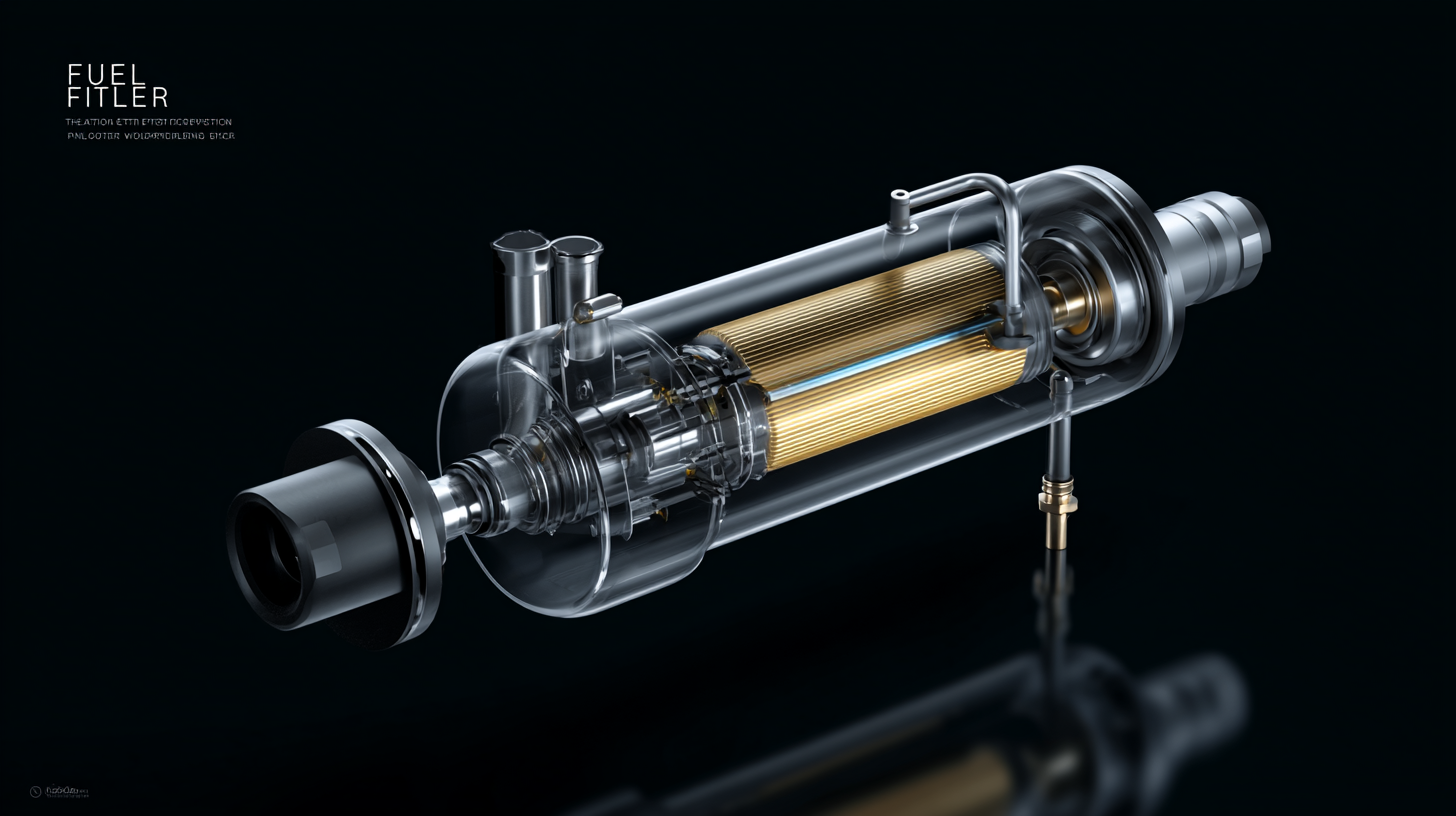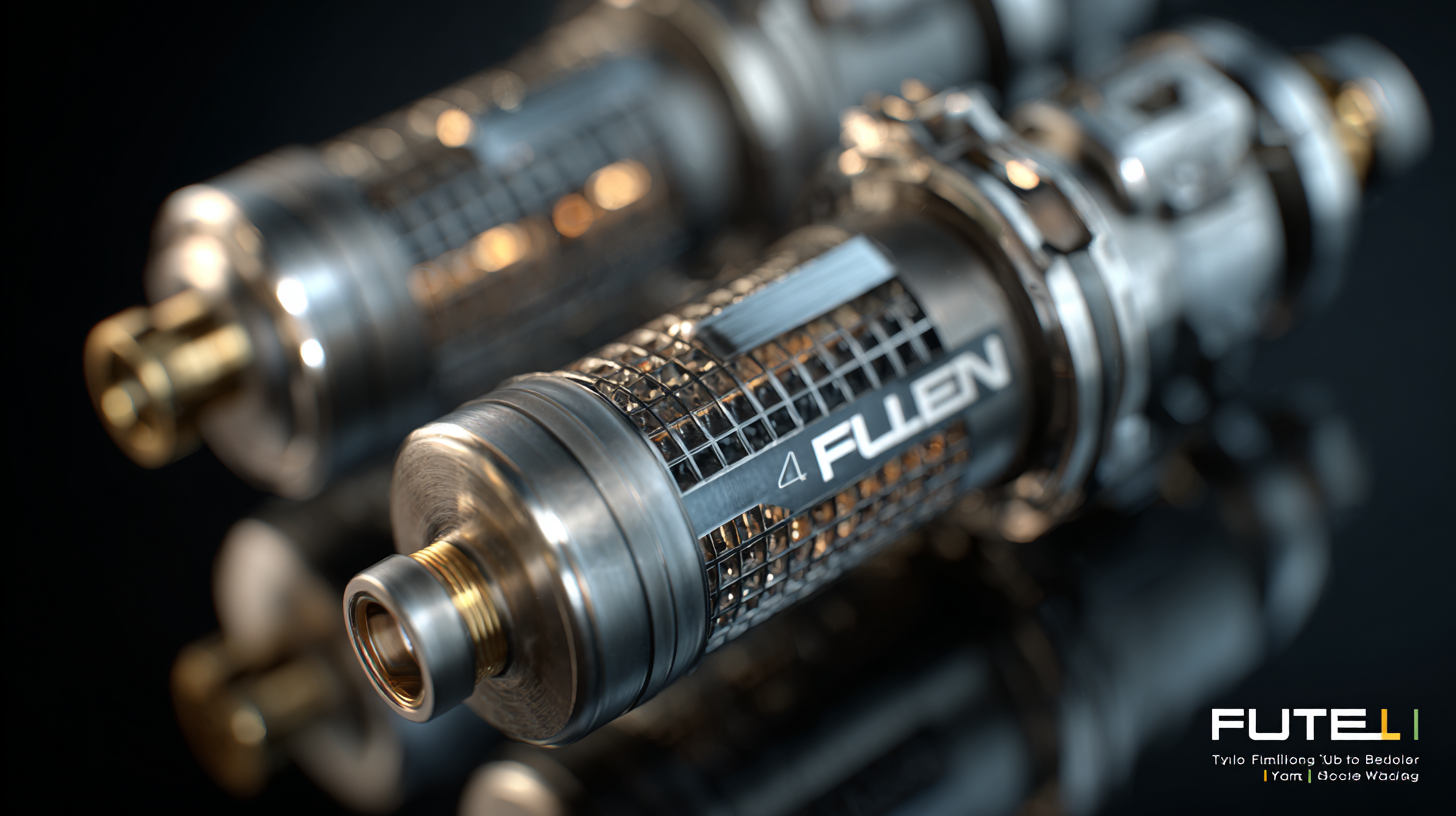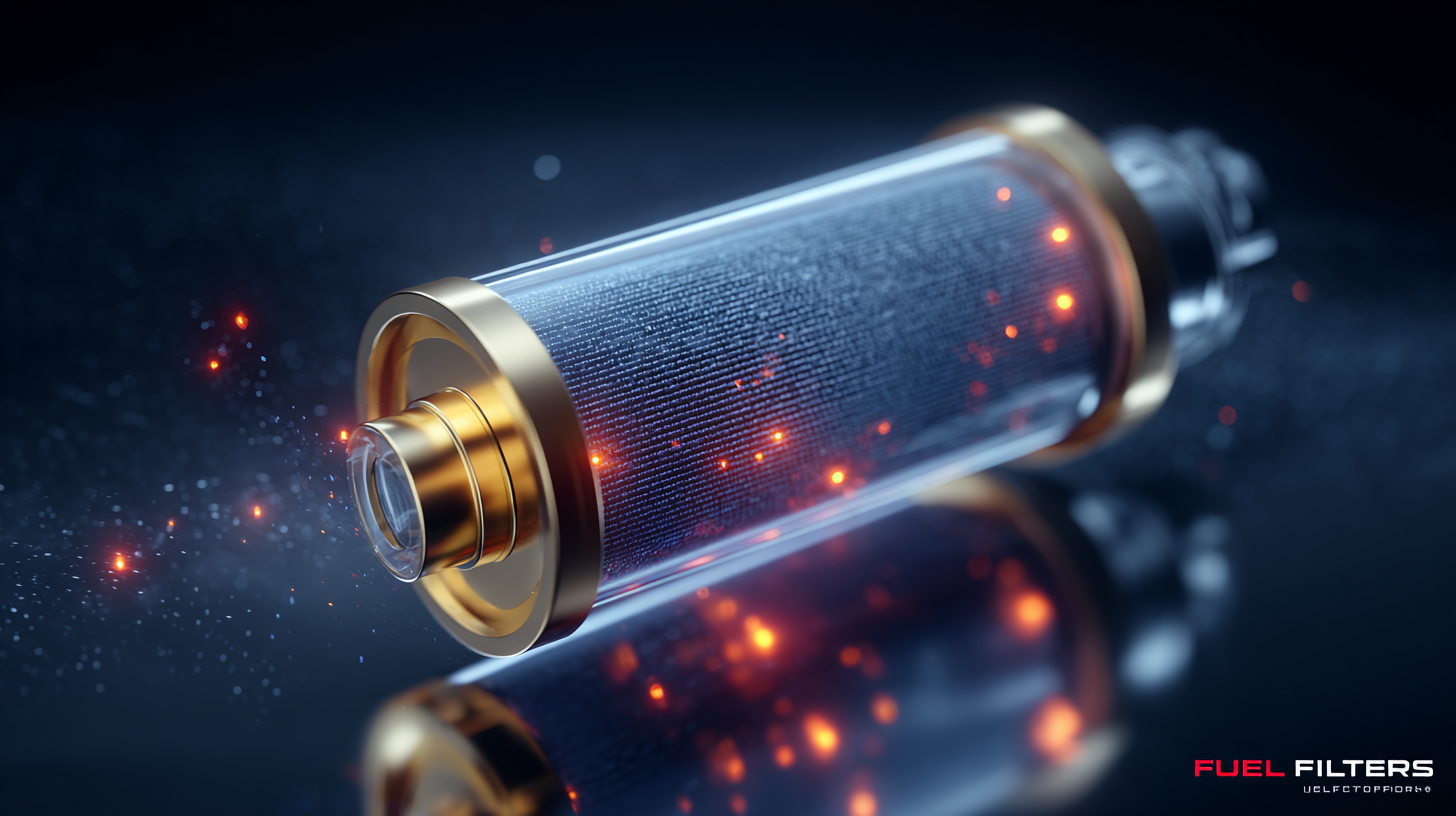
The Future of Fuel Filtration Technology for Global Buyers
 In the ever-evolving landscape of automotive technology, the significance of Fuel Filters cannot be overstated, especially as the global market for fuel filtration technology is projected to reach USD 23.8 billion by 2025, growing at a compound annual growth rate (CAGR) of 5.4% according to industry analyses. As fuel quality continues to decline due to factors such as environmental regulations and the advent of alternative fuels, the demand for advanced filtration solutions has surged.
In the ever-evolving landscape of automotive technology, the significance of Fuel Filters cannot be overstated, especially as the global market for fuel filtration technology is projected to reach USD 23.8 billion by 2025, growing at a compound annual growth rate (CAGR) of 5.4% according to industry analyses. As fuel quality continues to decline due to factors such as environmental regulations and the advent of alternative fuels, the demand for advanced filtration solutions has surged.
Innovations in filter materials and technologies are crucial to meeting these challenges and ensuring the longevity and efficiency of engines across various sectors. Furthermore, a report by MarketsandMarkets highlights that the increasing prevalence of stringent emission regulations worldwide will drive the adoption of high-performance fuel filtration systems among both consumers and manufacturers, making it an essential area of focus for global buyers.
This blog will delve into the future trends and technological advancements in the fuel filtration market, providing insights into why investing in superior fuel filters is vital for achieving optimal engine performance and environmental compliance.
Overview of Fuel Filtration Technologies: Types and Characteristics
 Fuel filtration technology is crucial for ensuring the quality and performance of fuels used in various applications, ranging from automotive engines to industrial machinery. There are several types of fuel filtration systems available, each characterized by its unique features and benefits. The most common types include mechanical filters, which rely on physical barriers to remove particulates, and water separators, designed specifically to eliminate water that can cause significant damage to engines.
Fuel filtration technology is crucial for ensuring the quality and performance of fuels used in various applications, ranging from automotive engines to industrial machinery. There are several types of fuel filtration systems available, each characterized by its unique features and benefits. The most common types include mechanical filters, which rely on physical barriers to remove particulates, and water separators, designed specifically to eliminate water that can cause significant damage to engines.
When choosing a fuel filtration system, it's important to consider factors such as flow rate, filtration efficiency, and maintenance requirements. A well-designed filtration system can not only improve fuel efficiency and engine performance but also extend the lifespan of equipment.
Tip: Always check the compatibility of the filtration system with your specific fuel types to ensure optimal performance. Additionally, regularly monitoring and replacing filters can prevent costly downtimes and maintain the reliability of your operations. Investing in advanced filtration technologies can yield significant long-term savings and enhance overall equipment reliability in the competitive global market.
Key Innovations in Fuel Filtration: Enhancing Efficiency and Performance
The global gasoline direct injection (GDI) system market is anticipated to experience significant growth, expanding from approximately $868,625 million in 2025 to an impressive $2.70942 billion by 2033, showcasing a compound annual growth rate (CAGR) of 15.28%. This growth is primarily driven by advancements in fuel filtration technology, which is essential for enhancing engine efficiency and performance. The evolution of fuel filtration systems is crucial, as these innovations directly contribute to the increasing demands for cleaner emissions and improved fuel economy in modern vehicles.
In the automotive sector, the fuel filter market is expected to witness substantial developments, with various segments projected to thrive. For instance, the market for automotive diesel engine filters is estimated to reach $5.4 billion by 2032, growing at a CAGR of 2.74%. This growth underlines the heightened focus on fuel efficiency and performance optimization across different vehicle types, including passenger and commercial vehicles. Similarly, the marine fuel filter market is also on an upward trajectory, projected to exceed $2.5 billion by 2024, supported by a CAGR of 4.2% from 2025 to 2034. These figures reflect a collective industry shift towards adopting advanced filtration technologies to meet evolving consumer and regulatory requirements.
The Future of Fuel Filtration Technology
Applications of Fuel Filtration Systems: Industries and Use Cases
Fuel filtration technology is becoming increasingly vital across various industries as the demand for cleaner and more efficient energy sources rises. In the automotive sector, advanced fuel filtration systems are crucial for maintaining engine performance and longevity. They protect sensitive components from particulate contaminants, enhancing fuel efficiency and reducing emissions. As electric and hybrid vehicles gain popularity, the importance of fuel quality in these vehicles cannot be overlooked; reliable filtration systems ensure optimal performance and compliance with environmental regulations.
In the aviation industry, fuel filtration plays a key role in ensuring the safety and reliability of aircraft operations. With stringent safety standards, aviation fuel must be free of contaminants to prevent engine malfunctions.  Sophisticated filtration systems are employed to eliminate water, particulate matter, and microbial growth from aviation fuel, safeguarding both the aircraft and its passengers. Additionally, the marine industry relies on fuel filtration systems to protect engines from the harsh conditions of the sea, ensuring that vessels operate efficiently and comply with international environmental standards. As technology advances, innovations in fuel filtration will continue to transform industries globally, driving towards a more sustainable future.
Sophisticated filtration systems are employed to eliminate water, particulate matter, and microbial growth from aviation fuel, safeguarding both the aircraft and its passengers. Additionally, the marine industry relies on fuel filtration systems to protect engines from the harsh conditions of the sea, ensuring that vessels operate efficiently and comply with international environmental standards. As technology advances, innovations in fuel filtration will continue to transform industries globally, driving towards a more sustainable future.
How to Choose the Right Fuel Filtration Technology for Your Needs
Choosing the right fuel filtration technology is crucial for optimal vehicle performance and compliance with emerging regulations. The global automotive fuel filter market is projected to reach significant heights, with a notable growth rate attributed to the increasing demand for cleaner fuels across different fuel types – gasoline, diesel, and alternative fuels. This trend reflects the evolving automotive landscape, where consumer preferences are shifting towards more sustainable options. With the market size anticipated to expand significantly, understanding the different specifications for passenger and commercial vehicles becomes essential.
When selecting fuel filtration technology, consider the type of fuel your vehicle uses and the specific contaminants that might be present. For instance, diesel engines typically require more robust filtration systems due to a higher prevalence of particulate matter. Additionally, it’s vital to evaluate the sales channels, whether through Original Equipment Manufacturers (OEM) or the aftermarket, as each provides different advantages in terms of quality and compliance with industry standards.
**Tip:** Always opt for filtration solutions that align with the latest environmental regulations to avoid potential fines and to contribute positively to sustainability efforts. Furthermore, analyzing the regional growth trends can provide insights into the best options available tailored to your specific market conditions.
The Future of Fuel Filtration Technology for Global Buyers - How to Choose the Right Fuel Filtration Technology for Your Needs
| Technology Type | Filtration Efficiency (%) | Flow Rate (L/min) | Maintenance Frequency (Months) | Cost (USD) |
|---|---|---|---|---|
| Strainer Filters | 85 | 25 | 6 | 150 |
| Coalescer Filters | 95 | 20 | 12 | 300 |
| Ultrafiltration | 99 | 30 | 18 | 500 |
| Activated Carbon Filters | 90 | 15 | 9 | 200 |
| Reverse Osmosis | 98 | 10 | 24 | 700 |
Future Trends in Fuel Filtration: Sustainability and Technological Advancements
As the world increasingly prioritizes sustainability, the fuel filtration industry is undergoing significant transformations. The shift towards eco-friendly practices is propelling the development of advanced filtration technologies that minimize environmental impact. These innovations not only enhance fuel cleanliness but also reduce waste by extending the lifespan of filtration systems. This focus on sustainability will likely push manufacturers to adopt greener materials and processes, ensuring that fuel filtration solutions are in line with global environmental goals.
In addition to sustainability, technological advancements are reshaping the fuel filtration landscape. The integration of smart technologies, such as IoT and AI, is enabling real-time monitoring of filtration systems, thus optimizing their efficiency and performance. These technologies allow for predictive maintenance, helping to identify potential issues before they escalate, which can significantly reduce downtime and costs. As global buyers become more aware of the benefits of these advancements, they will be better equipped to make informed decisions that align with both their operational needs and sustainability commitments.
